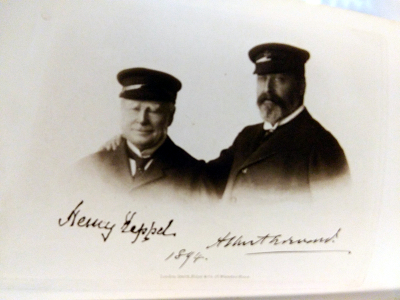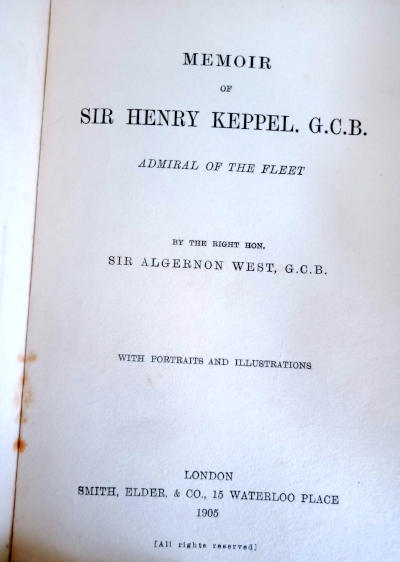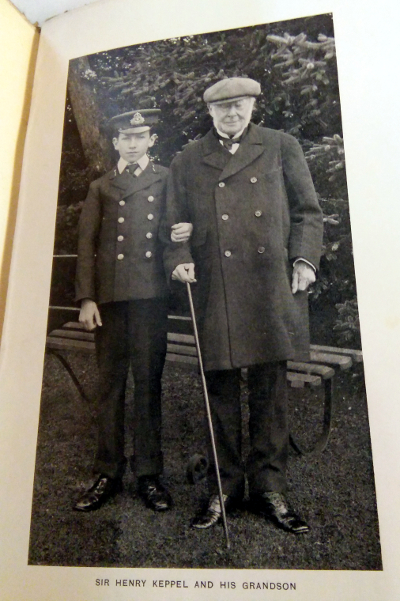About Henry Keppel (from Wikipedia):
Admiral of the Fleet Sir Henry Keppel, GCB, OM (14 June 1809 – 17 January 1904) was a British admiral, son of the 4th Earl of Albemarle and of his wife Elizabeth, daughter of Lord de Clifford.
He entered the navy from the old Naval Academy at Portsmouth in 1822. He became a lieutenant in 1829 and commander in 1833. His first command was largely spent off the coast of Spain, which was then in the midst of the convulsions of the Carlist War.
In 1837 he was promoted to Post Captain, and appointed in 1841 to the serve on the China Station and against the Malay pirates, a service which he repeated in 1847, when in command of HMS Maeander.
In May 1853 he was appointed to the command of the new steam line-of-battle ship HMS St Jean d’Acre. When the Crimean War broke out on 1854, the St Jean d’Acre formed part of the Baltic Fleet. Keppel witnessed the fall of Bomarsund. In 1855, St Jean d’Acre was sent to the Black Sea. On 21 July 1855, Keppel swapped commands with the captain of the sailing line-of-battle ship Rodney, whose crew were all ashore. Keppel served as commander of the Naval Brigade which was besieging Sebastopol.
After the Crimean War he was again sent out to China, this time in command of the Raleigh, as commodore to serve under Sir Michael Seymour. The Raleigh was lost on an uncharted rock near Hong Kong, but three small vessels were named to act as her tenders, and Commodore Keppel commanded in them, and with the crew of the Raleigh, in the action with Chinese pirates at the Battle of Fatshan Creek (1 June 1857). He was honorably acquitted for the loss of the Raleigh, and was given command of HMS Alligator, which be held until his promotion to rear-admiral. For his share in the action at the Battle of Fatshan Creek he was made KCB.
The prevalence of peace gave Sir Henry Keppel no further chance of active service, but he became Commander-in-Chief, Cape of Good Hope and West Coast of Africa Station in 1860, Commander-in-Chief, China Station in 1867 and Commander-in-Chief, Plymouth in 1872.
He retired from the active list in 1879, two years after he attained the rank of admiral of the fleet.






